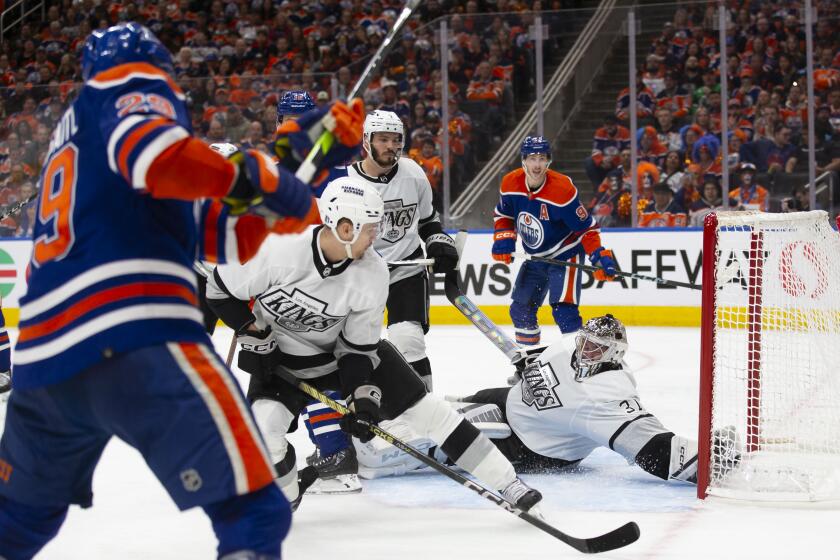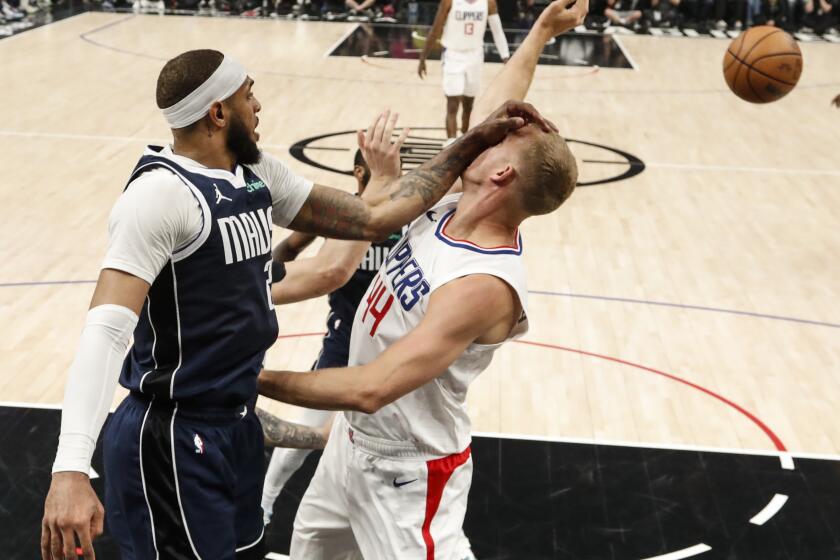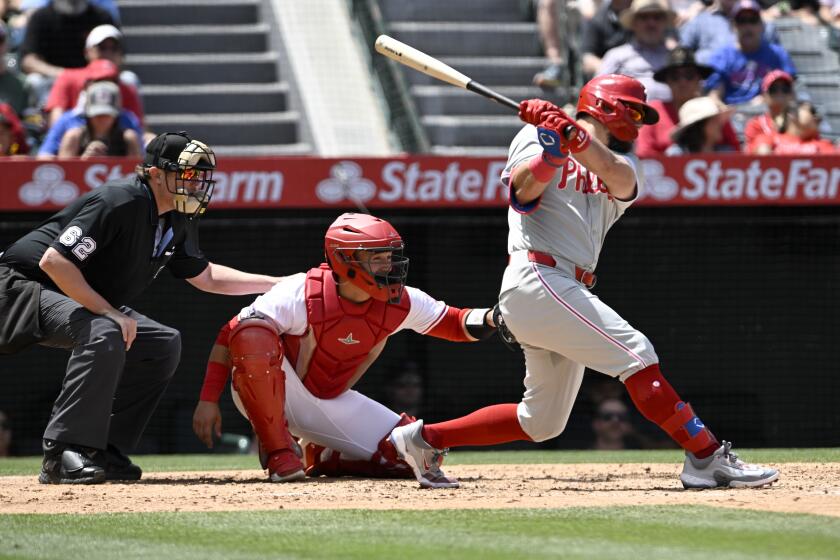Wimbledon writes check for equality
When Wimbledon adopted the novel concept of doling prize money to players in 1968, it gave 750 pounds to women’s singles champion Billie Jean King, and 2,000 pounds to men’s champion Rod Laver.
At least King got a good exchange rate, about $2.39 at the time, or about $1,800.
Born that summer, the pay gap spent its life lamented and defended and shrinking, until it finally reached zero and died Thursday with an announcement at the All England Club by chairman Tim Phillips, who said it is “time to bring this progression to a close and equalize fully.”
The decision, for which there were mostly cheers amid some grumbles, will take effect with this year’s tournament, set for June 25-July 8.
Phillips was asked if the All England Club was yielding to pressure.
“No, we’re not,” he said. “We are an independent group. This is a tennis club. We don’t have public funds given to us.”
Glaring at 63.5% when King beat Australian Judy Dalton Tegart for a third straight title on July 6, 1968, the gap narrowed to 40% by 1973 and to 10% by 1980. Yet, the notion of unequal prize money proved doggedly durable, unbowed by critics, whether it was Venus Williams, Martina Navratilova, King or Prime Minister Tony Blair.
By last summer, however, the gap at Wimbledon was 4.8%, with men’s champion Roger Federer receiving $1.170 million and women’s champion Amelie Mauresmo receiving $1.117 million, and with Federer himself saying, “If the difference is so small, you might as well make it equal. It would make it simple, I think.”
As long ago as 1999, King said, “The money that Wimbledon is saving, less than 2% of its profits, is not worth the resulting ill will and distraction.”
Even the infamous Richard Krajicek, the 1996 men’s champion who in 1992 labeled 80% of the top 100 women “fat pigs,” went from saying, “What I meant to say was that 75% of the top 100 women are fat pigs,” to calling equal pay “fine” by the end of the 1990s.
And Thursday, Mauresmo said, “They resisted the longest they could.”
Resistance has traditionally included some players noting the men’s longer match requirements -- they play best-of-five sets while women play best-of-three -- that King often countered with, “Entertainers do not get paid by the hour.”
Many cheered Thursday’s announcement, including King, who saw it as “the right thing to do for the sport, the tournament and the world.”
Three-time champion Williams also left no doubt.
“The greatest tournament in the world has reached an even greater height today,” she said.
U.S. Open champion Maria Sharapova, the 2004 Wimbledon champion, thought the move would “only strengthen the bond between the women’s players and one of the world’s great sporting events.”
And women’s tour Chief Executive Larry Scott called it a “historic and defining moment.”
Not everyone was pleased.
German Tommy Haas, who is ranked No. 9 in the world, told Reuters pay parity was unfair and suggested that Wimbledon should actually put more money into the men’s prize fund.
“I think the depth of men’s tennis is much tougher than the women’s, plus we play best of five sets,” he said, adding that the men had to be in top physical condition for the grass courts at Wimbledon.
“Not to say that the women don’t deserve it. The top players train very hard and are very good tennis players, but in general I don’t agree with it.”
But Britain’s Andy Murray, who is ranked No. 13, liked the move and said it sends a message that tennis is leading the way in equality.
American Mardy Fish agreed.
“We’re all out there to put on a show for the fans,” Fish said. “OK, so we’re not out there for the same time; the only beef I would have with it is we’re out there for longer. But there are a lot of tennis fans who prefer women’s tennis to men’s tennis.”
Commentator Peter Fleming, a former No. 1 doubles player, told the BBC, “It’s very difficult to determine, well, who do the people come to see more? ... Far better just to say here’s the equal money because the difference last year was so small it’s not even worth talking about.”
By deciding in favor of equal prize money at all levels of play, Wimbledon pulled even with the U.S. Open and the Australian Open.
“Now the pressure is on the French Open,” said Mauresmo, who is French. The Paris tournament is now the only Grand Slam event that gives equal pay to its champions but more prize money to men who reach other rounds.
Phillips, the All England Club chairman, talked of reaching a wider market, that the change at Wimbledon could “provide the game a boost in the crowded sports landscape” and become a “signal to talented young athletes that tennis is a sport that they should go for.”
He also said the decision had been unanimous, putting to rest not only a tradition but a discrepancy that began in 1968, though technically in 1884, the year Maud Watson, playing in the white corset and petticoat of the era, beat her older sister Lillian in three arduous sets, then received a silver flower basket worth about 24 pounds.
And the men’s champion, William Renshaw, received a gold prize worth about 36 pounds.
Times staff writer Lisa Dillman contributed to this report.
More to Read
Get our high school sports newsletter
Prep Rally is devoted to the SoCal high school sports experience, bringing you scores, stories and a behind-the-scenes look at what makes prep sports so popular.
You may occasionally receive promotional content from the Los Angeles Times.






